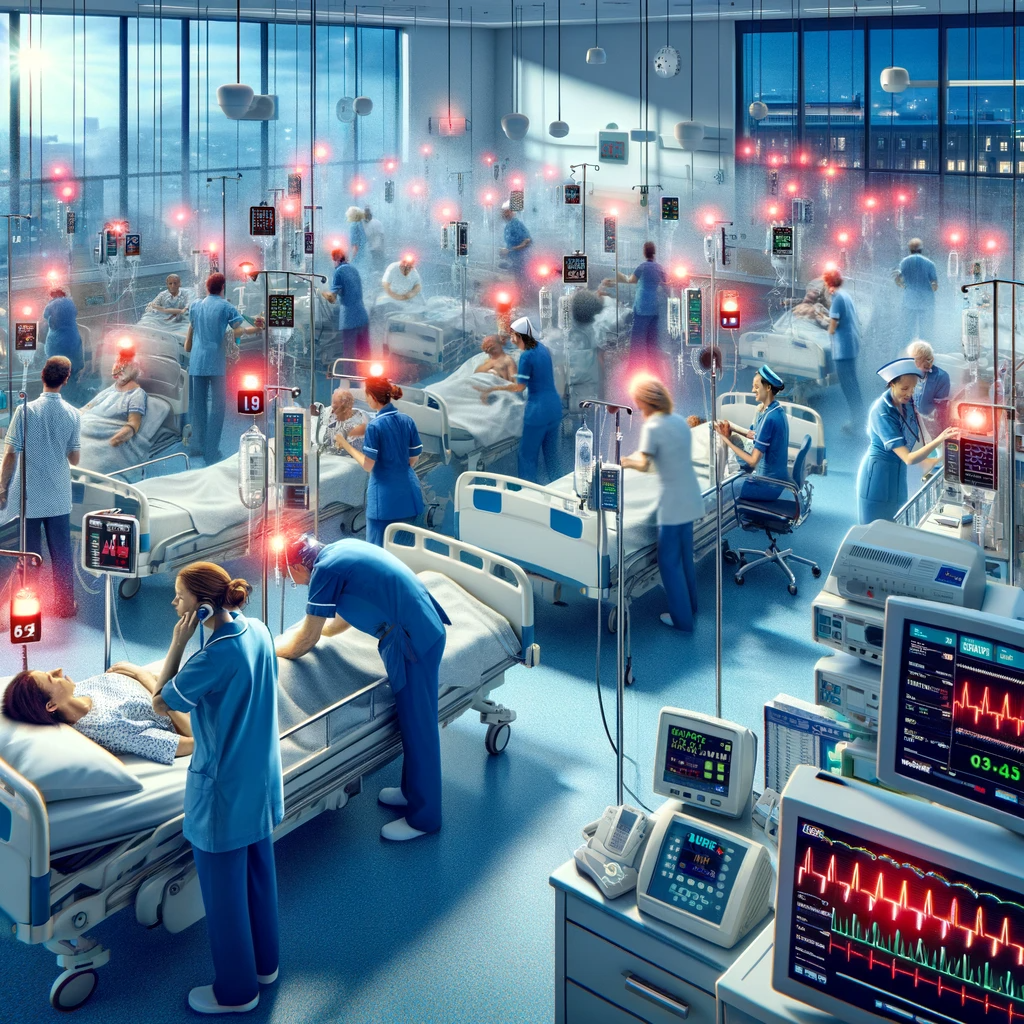
When we think of a hospital, it’s often the life-saving treatments, state-of-the-art technology, and the dedicated staff that come to mind. But behind the scenes, there’s an unspoken challenge that threatens the wellbeing of these professionals, especially nurses: the constant din of medical device alarms.
The healthcare world heavily relies on these alarms. They are vital for patient safety, notifying staff of any change in a patient’s condition. But there’s a downside. The sheer number of these alarms, many of which can be non-actionable or false, can lead to what’s known as ‘alarm fatigue.’
In the research study, “Alarm Fatigue: A Patient Safety Concern,” Sendelbach & Funk described how healthcare professionals can become desensitised to the barrage of alarms. Over time, this desensitisation can result in a delayed response to alarms, even the critical ones.
The consequences? It’s not just the patients who are at risk. The wellbeing of nursing staff is also deeply impacted. According to the study “Impact of alarm fatigue on the work of nurses in an intensive care environment – A systematic review“, alarm fatigue can be a significant source of stress and burnout. Nurses constantly face the pressure of discerning between genuine alarms and the multitude of false or non-critical ones. This persistent state of high alert takes a mental and emotional toll.
Another revealing article, “Delayed Recognition of Deterioration of Patients in General Wards Is Mostly Caused by Human Related Monitoring Failures,” highlights that most cases of unplanned ICU admissions arise from monitoring failures, often due to alarm fatigue.
What’s more alarming is the long-term impact. Constant stress and the associated emotional baggage can lead to reduced job satisfaction, increased turnover rates, and even mental health issues among nurses.
It’s crucial for hospital administrations to recognise the severity of this issue. Solutions like improved alarm management, advanced alarm filtering, and ongoing staff training can make a significant difference. Remember, caring for those who care for others is not just a good-to-have—it’s an imperative.
If you’d like to know more about BEAMS and what we’ve done to mitigate this problem, find out more here, or feel free to contact us. We’d love to hear from you.